7 Real-World Applications of Generative AI Enhancing Customer Experience
AI INDUSTRY & INSIGHT
Joanne Lin
2/25/20256 min read
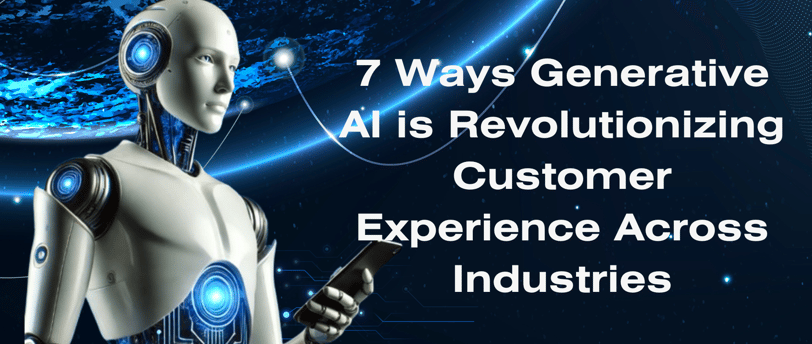

Extensive research has demonstrated the significant benefits of artificial intelligence (AI) adoption across various industries. For instance, a McKinsey survey reported that 65% of organizations are regularly utilizing generative AI, nearly double the percentage from ten months prior, with these organizations observing measurable benefits such as increased efficiency and productivity. According to research by IDC, companies implementing generative AI report an average return on investment (ROI) of $3.7 for every dollar spent, with some organizations experiencing up to a tenfold increase.
Moreover, research from Master of Code highlights AI’s profound impact on customer satisfaction. Their survey found that 91% of businesses implementing AI in customer support reported positive outcomes, citing improved customer engagement and service efficiency.
Therefore, in today's rapidly evolving business landscape, Artificial Intelligence (AI) has transitioned from a futuristic concept to an essential component for companies aiming to stay competitive. No longer a luxury, AI is now a critical driver of innovation, efficiency, and customer satisfaction. This article explores seven industries and brands that have successfully harnessed generative AI to elevate customer experiences. We will analyze how these enterprises have leveraged new tools to gain a competitive edge. Join us as we delve into AI-enhanced solutions that are setting new standards in customer service quality.
1. Zalando: Enhancing Media Management
European fashion platform Zalando faced challenges with its existing image management system, which offered limited flexibility and visibility for developers. To address this, Zalando migrated its media management solution to Amazon CloudFront, a content delivery network service. This transition provided developers with greater control and improved scalability, leading to an enhanced online shopping experience. Post-migration, Zalando achieved a 99.5% cache hit ratio and now delivers approximately 5 billion images daily, ensuring swift and reliable content delivery to its customers.
The brand firmly believes that fashion trends led by generative AI will lead us to a new era of more personalized and interactive shopping. They have launched a conversational tool that allows customers to discover the perfect fit for their unique style and needs in a casual chat.


2. Tripadvisor: Implementing Conversational AI
Tripadvisor sought to maintain engagement with its users through innovative channels. The company implemented conversational AI technology, enabling users to interact with Tripadvisor via voice assistants like Alexa and Google Assistant. This initiative allowed users to access travel recommendations and information through natural, conversational interactions, thereby enhancing user engagement and accessibility.
The company's vast database of customer reviews and feedback ensures the reliability of these recommendations, so travelers can easily customize their travel schedules and feed back into the database. Overall, generative AI ensures that recommendations are more personalized, optimising the planning experience and increasing user engagement.
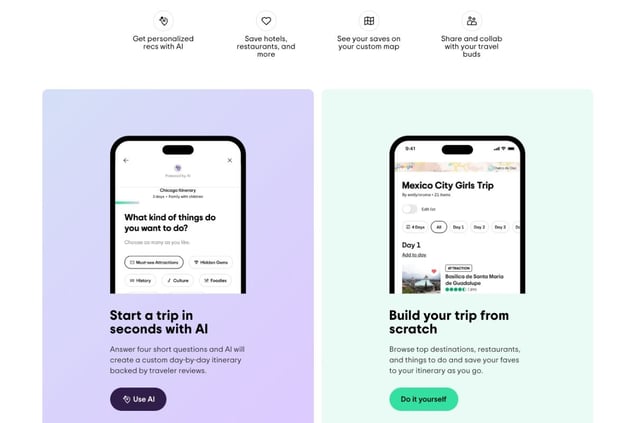

3. Amazon: Enhancing Product Review Insights
Amazon has introduced AI-powered features to streamline the product review experience for customers. By employing generative AI, the platform generates concise summaries that highlight key product features and prevalent customer sentiments directly on the product detail pages. This innovation enables shoppers to quickly grasp the essence of customer feedback without sifting through numerous individual reviews. For instance, a product page might display an AI-generated summary stating, "Customers appreciate the durability and sleek design of this blender, though some mention it's slightly noisier than expected." Such summaries distill common themes, aiding customers in making informed purchasing decisions efficiently.
To further refine these personalized experiences, Amazon has integrated Large Language Models (LLMs) into its ecosystem. These models delve deeper into understanding customer preferences by analyzing complex data sets, including nuanced language patterns in reviews and queries. The result is a more sophisticated matching of products to customer needs, enhancing satisfaction and fostering loyalty.
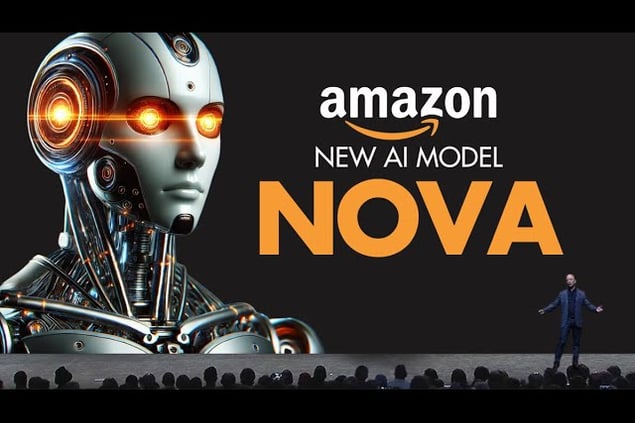

4. Carrefour: Introducing 'Hopla' for Smart Shopping
Carrefour, one of France’s largest retail chains, has introduced Hopla, an AI-powered interactive assistant designed to transform the shopping experience. By utilizing generative AI, Hopla provides personalized product recommendations tailored to individual customer preferences, including budget constraints, dietary needs, and culinary interests. This AI assistant goes beyond basic recommendations—it assists shoppers in meal planning, reducing food waste, and making informed purchasing decisions.
Hopla's integration with Carrefour’s e-commerce platform ensures a seamless and intuitive shopping journey. Customers can interact with the AI assistant using natural language queries, allowing for a more human-like and efficient experience. Whether helping users find the right ingredients for a recipe or suggesting cost-effective meal options, Hopla enhances both customer convenience and sustainability efforts.
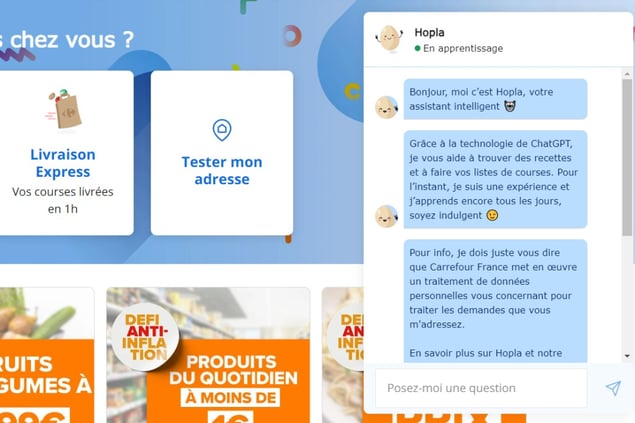

5. SK Telecom: Launching 'A.' Digital Companion
South Korea’s leading telecommunications company, SK Telecom, has launched ‘A.’, a generative AI-powered digital companion designed to enhance user experiences through personalized assistance. Leveraging large language models (LLMs), ‘A.’ can manage schedules, provide entertainment recommendations, and assist with everyday tasks, offering a seamless, interactive experience. By integrating natural language processing (NLP), the AI assistant understands and responds to user queries in a conversational manner, making digital interactions more intuitive and efficient.
Beyond convenience, ‘A.’ has significantly improved customer service operations. By handling routine inquiries and providing instant responses, the AI has helped reduce call wait times by 30%, allowing human agents to focus on more complex customer needs. This efficiency boost has led to higher customer retention rates, as users benefit from faster and more effective support.
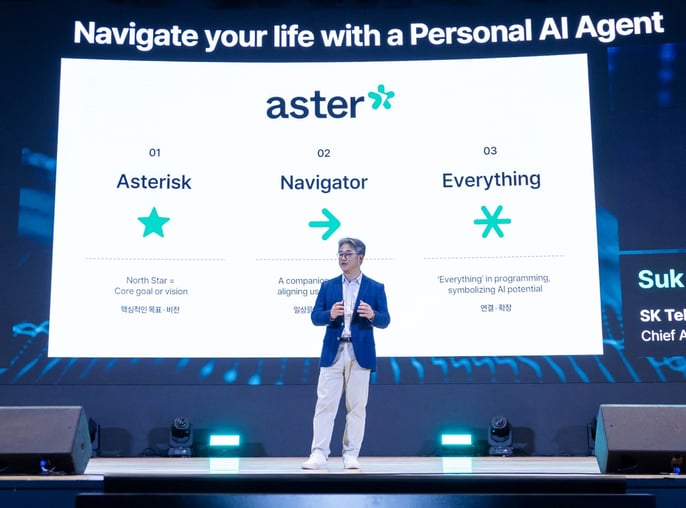

6. Tesla's Autopilot: Redefining the Smart Car Experience
Tesla's Autopilot system, powered by advanced AI technology, has become one of the key drivers behind the company's sales growth. By integrating real-time data from cameras, radar, and ultrasonic sensors, the system utilizes deep neural networks to achieve precise environmental perception and decision-making. This enables features such as automatic lane-keeping, intelligent speed adjustments, and proactive collision avoidance in complex road conditions.
Tesla leverages Autopilot as a differentiating factor, enhancing user retention through continuous over-the-air (OTA) updates. New features, such as automated parking and urban navigation, ensure that the vehicle "gets better over time," encouraging consumers to upgrade or repurchase.
Statistics show that Autopilot-related features contribute approximately $12,000 in added value per vehicle, with over 70% of buyers listing it as a key reason for choosing Tesla. This directly fueled Tesla’s global sales surpassing 1.8 million units in 2023, marking a 38% year-over-year increase.
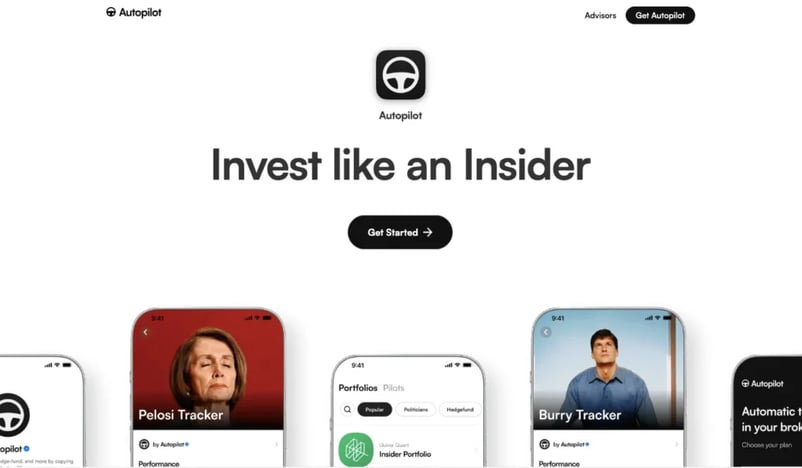

7. MetLife: Enhancing Customer Service
MetLife, a global insurance provider, has integrated AI-driven sentiment analysis to enhance customer interactions in real time. The AI system assesses emotional cues and tonal variations, allowing customer service representatives to better understand client needs and tailor their responses accordingly. By leveraging natural language processing (NLP) and machine learning, MetLife’s AI helps agents adjust their communication strategies dynamically, leading to more empathetic and effective customer interactions.
Beyond improving real-time support, the AI system generates detailed communication reports for managers, identifying areas for improvement and offering targeted coaching for customer service teams. This data-driven approach has yielded tangible results: MetLife’s first-call resolution rate increased by 3.5%, while customer satisfaction improved by 13%.


How GenAI Creates Future-Ready Companies
As businesses navigate the rapidly evolving AI landscape, AI readiness has become a crucial factor in maintaining a competitive edge. Companies that proactively assess their AI maturity, invest in strategic AI integration, and foster a culture of innovation are the ones best positioned to thrive in the digital era.
At GenAI Consulting, we offer a 5-Day AI Readiness Program designed to help organizations quickly evaluate their AI potential and develop a clear roadmap for implementation. Whether you’re looking to enhance customer interactions, automate processes, or leverage AI-driven insights, our structured approach ensures that AI becomes a scalable and sustainable part of your business.
Connect with our AI consultants today to kickstart your AI transformation and future-proof your organization.

Get in touch
Share with visitors how they can contact you and encourage them to ask any questions they may have.
Innovate
Empowering businesses through AI-driven solutions.
Transform
Become Future ready
© 2025. All rights reserved.
